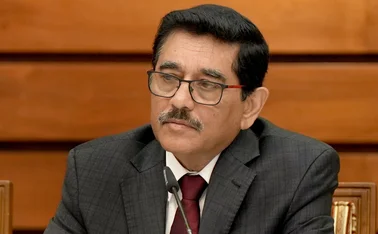
BoJ changes represent the death knell for central bank independence

Japanese prime minister Shinzo Abe's nomination of Haruhiko Kuroda as governor and Kikuo Iwata and Hiroshi Nakaso as deputy governors of the Bank of Japan (BoJ) on February 28 represents a significant development in central bank independence.
The events in Japan are at the tip of a growing crisis in central bank policy, with central banks assuming responsibilities – willingly or unwillingly – beyond their traditional price-stabilising role and, on occasion, role as lender-of-last-resort.
The BoJ
Only users who have a paid subscription or are part of a corporate subscription are able to print or copy content.
To access these options, along with all other subscription benefits, please contact info@centralbanking.com or view our subscription options here: http://subscriptions.centralbanking.com/subscribe
You are currently unable to print this content. Please contact info@centralbanking.com to find out more.
You are currently unable to copy this content. Please contact info@centralbanking.com to find out more.
Copyright Infopro Digital Limited. All rights reserved.
As outlined in our terms and conditions, https://www.infopro-digital.com/terms-and-conditions/subscriptions/ (point 2.4), printing is limited to a single copy.
If you would like to purchase additional rights please email info@centralbanking.com
Copyright Infopro Digital Limited. All rights reserved.
You may share this content using our article tools. As outlined in our terms and conditions, https://www.infopro-digital.com/terms-and-conditions/subscriptions/ (clause 2.4), an Authorised User may only make one copy of the materials for their own personal use. You must also comply with the restrictions in clause 2.5.
If you would like to purchase additional rights please email info@centralbanking.com







